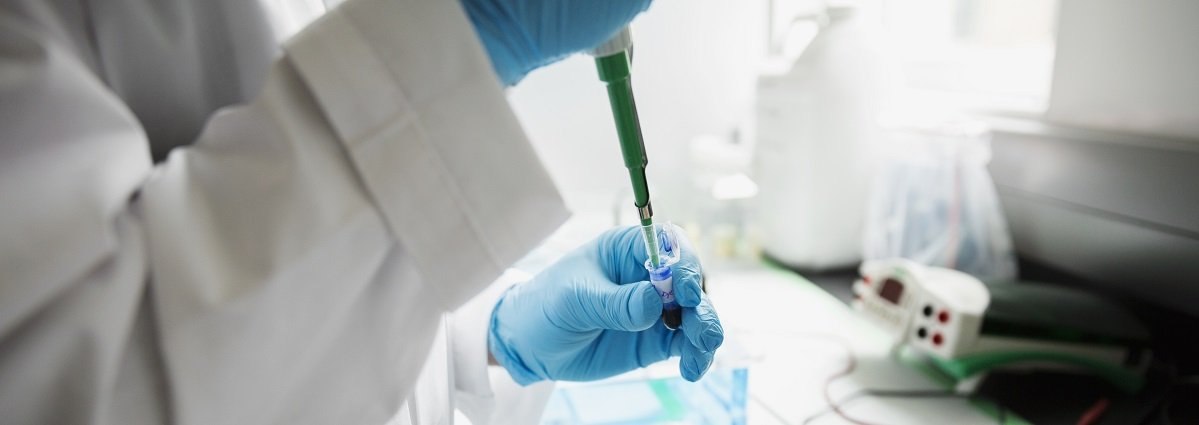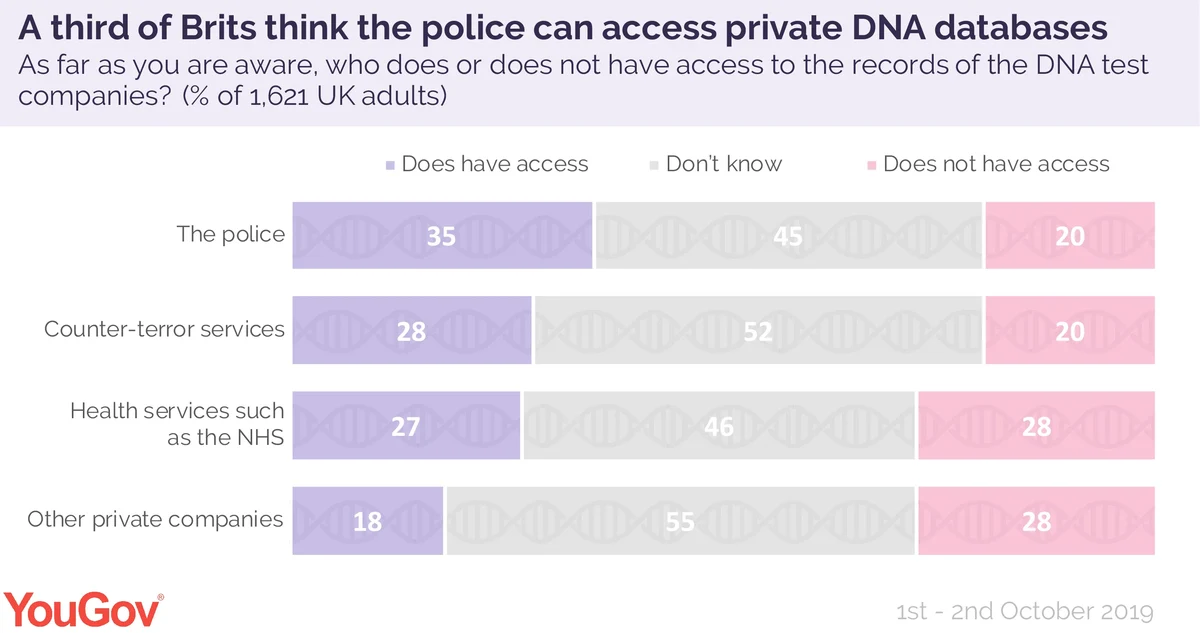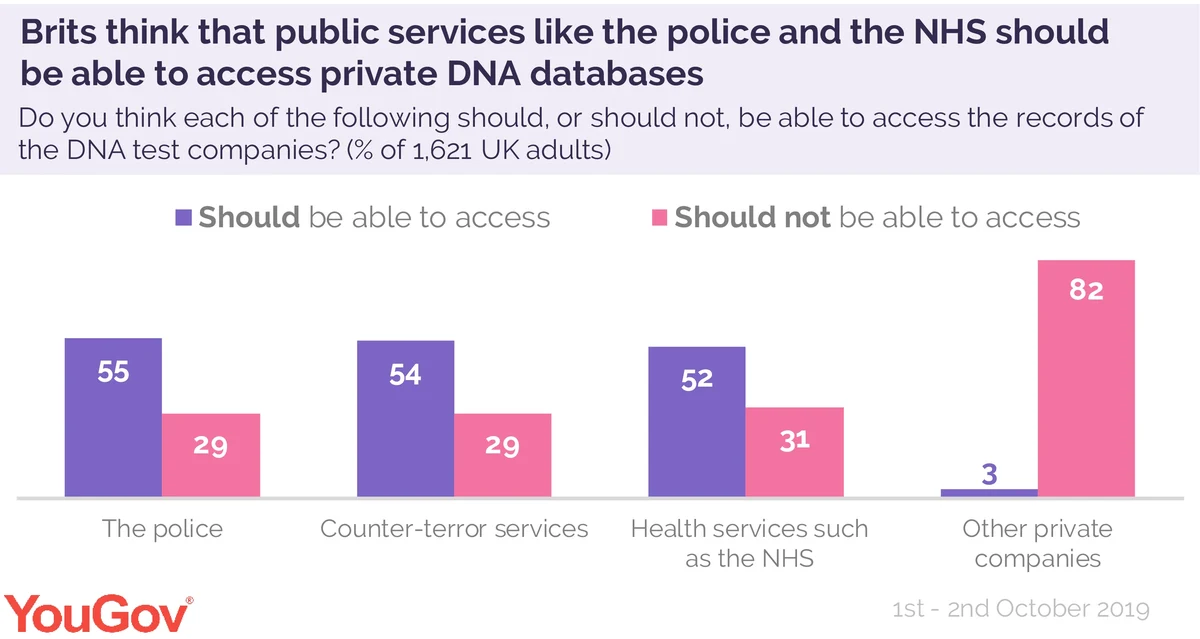Cheap and easy DNA testing is being used to trace ancestry and uncover potential health issues, but should this private data be accessible to the police and security services?
At one time DNA sequencing required a vast budget and a huge team of scientists, but now anyone can have small parts of their genome analysed by one of several startups for less than £100.
And one in twenty (5%) Britons have already done so, most commonly to trace their ancestry, but also to reveal potential predispositions to various diseases.
However, Britons are sceptical that DNA companies will keep the results to themselves. Some 58% of those who have taken a test are not fully confident that their genetic information will be kept private.
A third (35%) of Brits think the police are able to access the DNA records of these testing companies, and 28% say they think the anti-terrorism services are also able to snoop through the data. Nearly one in five Britons (18%) think that other private companies are able to access the information.
In truth, DNA testing companies will generally refuse to reveal the genetic information of customers, although there are rare cases where the police have used open-source DNA databases to narrow a list of suspects.
But Britons are generally relaxed about the idea of third parties such as healthcare services, the police and counter-terror services using the information – just as long as private companies can’t see it. Over half (55%) think the police should have access, and 54% say counter-terror services should as well.
A similar number (52%) say that the NHS should be able to access the records. But, outside of the security and health services, the vast majority of Britons (82%) don’t want other private companies to be able to see their DNA records.
These issues are likely to become more and more relevant, as 5% of Britons have already taken a test and a further 8% tell us that they’re interested in taking one in the future.
Image: Getty
See full results here














